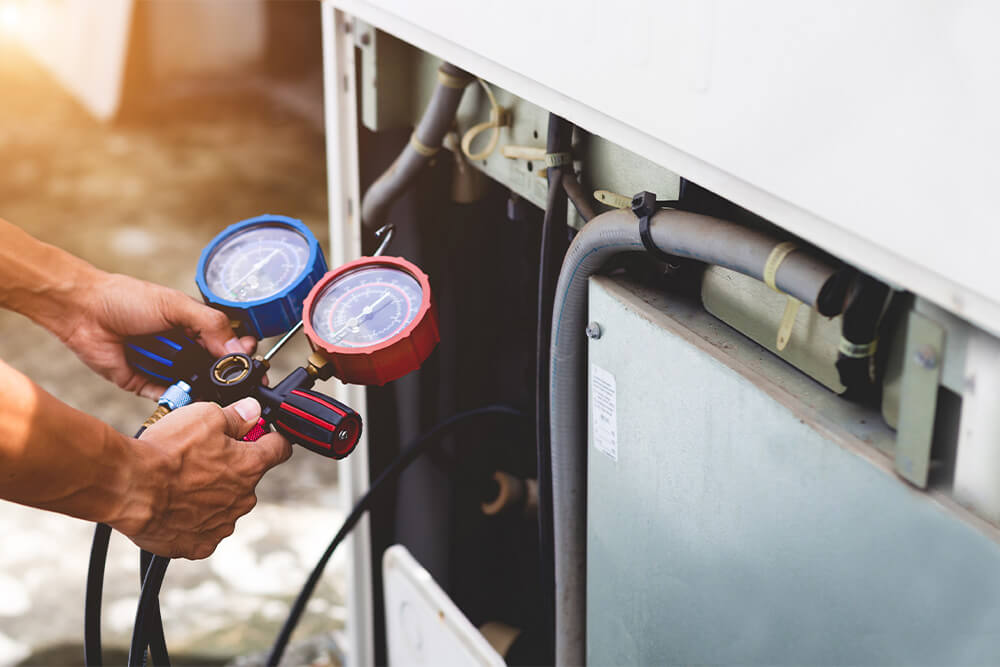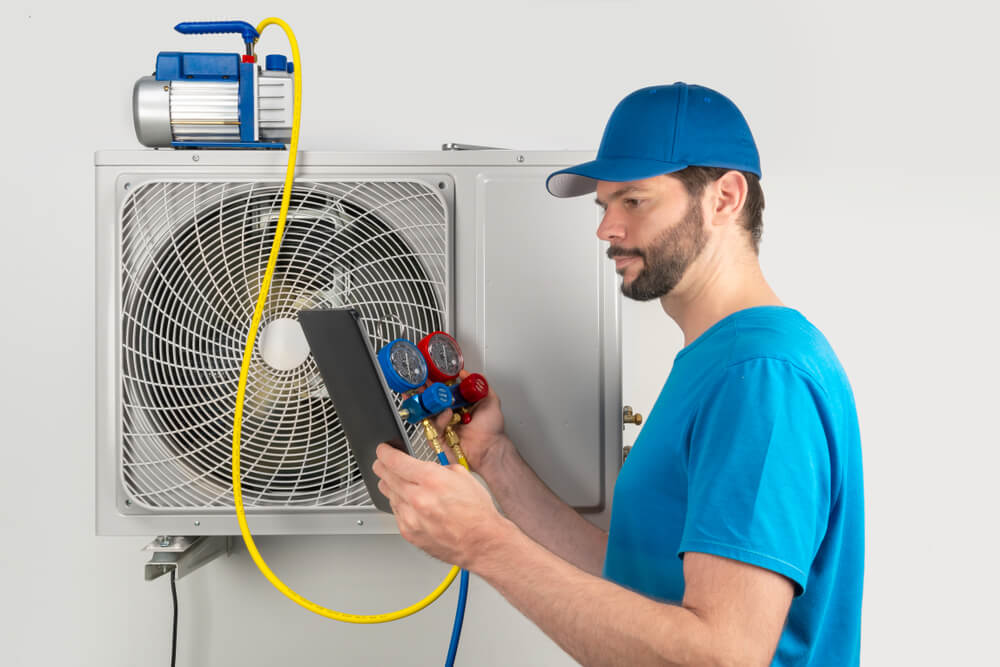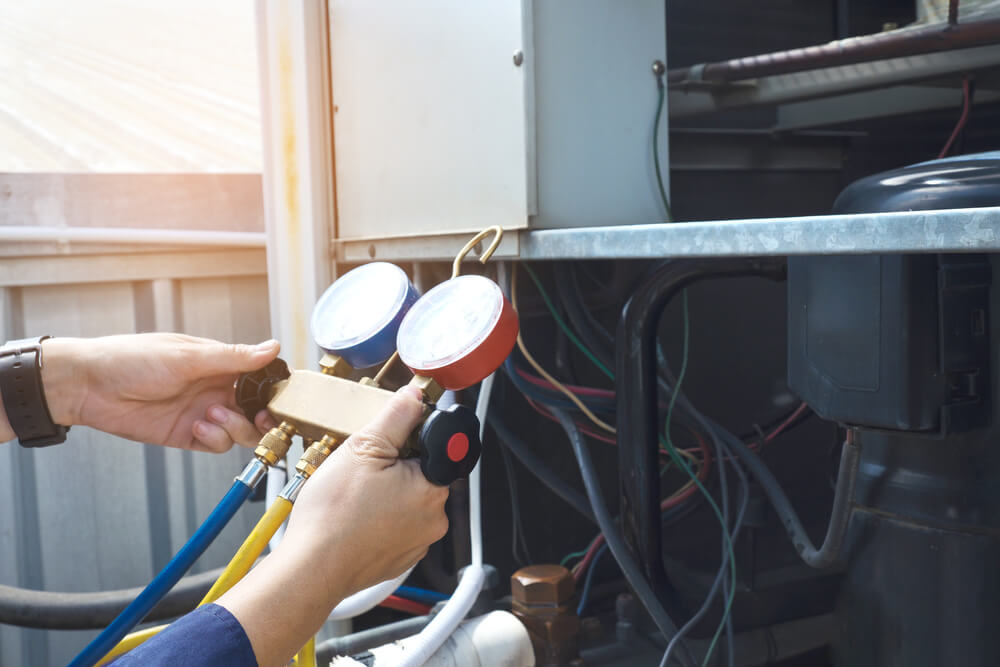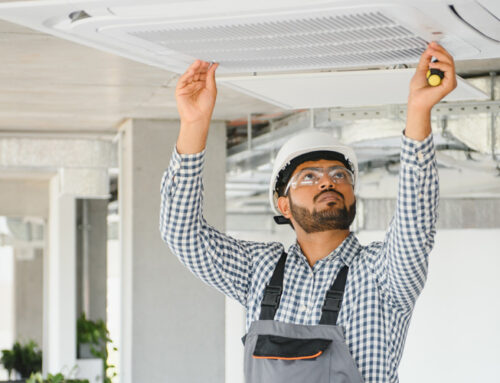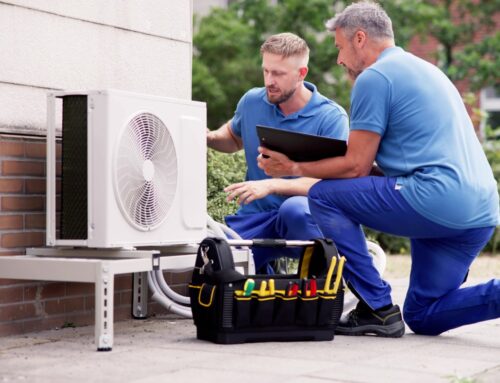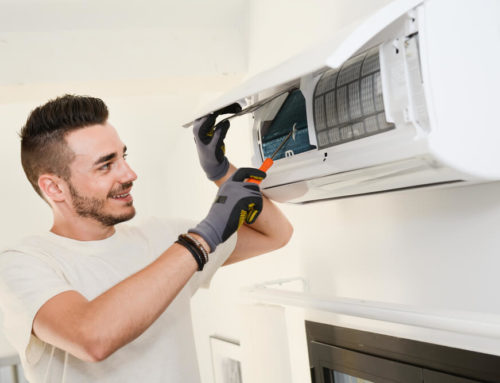Ask any AC technician, and they will tell you that the compressor is pretty much the “heart” of your unit as it plays a vital role in the cooling cycle and is among the most expensive components of these devices.
The air conditioner compressor is responsible for keeping your house comfortable and cool during the hot weather. It converts power into energy, circulating the refrigerant needed to perform the heat exchange process.
In simplest terms, if you don’t have a working AC compressor, you don’t have a properly operating system.
In this article, we’ll explain how these components work and even give pointers on how to fix an AC compressor. On the other hand, if you are experiencing any issues with your unit, feel free to ask us about our air conditioning tune-up & repair services so we can get your unit back in working order in no time.
How an AC Compressor Works
Generally, the AC compressor will be on the outdoor unit. As mentioned above, its main role is to circulate the necessary amount of refrigerant to perform the heat exchange process with the help of the coils. You can think about the compressor as the unit’s energy source. The electricity runs through the air conditioner compressor, powering the unit to absorb the heat and to create cool air, pushing it into your home.
The AC compressor’s cooling process will usually start with the motor, which powers the entire compressor with the help of a piston and a cylinder. The compressor then raises the vapor refrigerant’s pressure and temperature that’s leaving the coils (evaporator coils). It’s vital that the AC compressor manages to raise the refrigerant’s temperature to “suck” the heat from the home into the condenser. Then, the condenser will “condense” the incoming vapor into refrigerant liquid, cooling the heat.
Then, the AC compressor raises the refrigerant’s pressure to enter the indoor unit. This is an ongoing process that is essentially responsible for the constant heat exchange and the cooling effect.
Common Air Condition Compressor Problems
Unfortunately, many issues may lead to AC compressor failure, but luckily, most of these problems aren’t expensive to fix. There are cases when the problem is caused by something simple, like a clogged air filter that prevents proper airflow.
Sadly, when the AC compressor is truly failing, sometimes the repairs may be so costly that it might be better to purchase a new AC system altogether.
Luckily, you can prevent a large number of compressor failures when you maintain the unit properly and address any suspicious issues as soon you start experiencing them. For starters, scheduling routine maintenance and checkups can go a long way in detecting and fixing smaller issues that may lead to more severe mechanical or electric failures down the road.
Truth be told, most AC compressor failures result from unqualified “experts” trying to take care of AC symptoms or perform quick fixes to save a couple of dollars or some time. These approaches might work once or twice, but to ensure the longevity of your system and the comfort of your home, you should always contact a certified AC technician to take care of maintenance and other issues.
AC Compressor Electrical Problems
Experts will agree that these are probably the most expensive repairs, as electrical damage may cause permanent problems to the entire system, not just the compressor.
When electrical problems happen, additional acids tend to build up that are potentially hazardous to the entire system. Still, with routine tune-ups, electrical errors can be simply prevented. An expert technician will inspect the whole system for damaged fuses, faulty wiring, and acid buildup to keep your unit in working order.
Suction Line Sizing Problems
Improper suction line sizes are usually issues that stem from an unqualified technician’s handiwork. If the line’s too large or small, the air conditioning compressor may break down, requiring expensive repairs.
Again, the knowledge and the experience of a seasoned technician go a long way in ensuring that an AC system operates properly and for a long time.
Having Too Much Refrigerant in The AC
Just like installing suction pipes of the wrong size, unqualified techs may also use a refrigerant type that doesn’t work for your system.
Or, there are instances where homeowners choose to perform minor tune-ups by themselves and fill the system with too much refrigerant, unintentionally causing severe damage to the AC compressor.
Leaking Refrigerant
As time passes, the unit’s refrigerant lines may start to crack and develop holes. This night leads to refrigerant leaks, and as the level of these compounds decreases, the air conditioner compressor will have to work harder to perform the same job and push the refrigerant through the entire system. If the compressor has to work overtime for too long, the component will eventually fail.
The Suction Lines Are Blocked
The initial telltale signs of damaged or blocked suction lines is a noticeable decrease in the unit’s overall performance. Unfortunately, if the issue isn’t addressed early on, the AC compressor might overheat and fail, as the blockage will also increase the temperature and pressure in the system.
Coils Filled With Filth
Filthy coils are often the result of grime, mineral, and residue buildup on the condenser coil. When this happens, the unit fails to eject the necessary heat from itself, forcing itself to run continuously to keep your home cool. The increased temperature and pressure will eventually overheat the air conditioner compressor, which will inevitably fail.
Debris and Dirt from Outdoors
Oftentimes, the main culprits responsible for damaging the compressor are outdoor contaminants, like leaves, bird droppings, dirt, debris, acids, moisture, and air: all of these might get into the unit and cause the compressor to fail.
Oil Lubricant Issues
The lubricant levels work pretty much the same as refrigerant levels. Not enough or way too much of these lubricant oils can lead to improper system function, which may potentially lead to compressor damage. Fine-tuning the amount of lubricant oils is also a job that’s best left for professionals.
The Importance of Regular Maintenance and Checkups
The best way to avoid potential compressor problems is to have a team of professionals check and tune your unit from time to time.
Proper maintenance is essential not just to avoid costly repairs and to expand the lifespan of your air conditioner or HVAC system to its maximum, but also to ensure that the air that circulates in your home is clean. Not to mention, an improperly-working compressor and unit can lead to costlier utility expenses.
As such, hiring certified experts to take care of your HVAC or air conditioning system is always a smart move and a good investment. And if you want to work with the best, feel free to give us a call, and we will help you with everything AC-related, let that be maintenance, servicing, fixes, or replacement.

